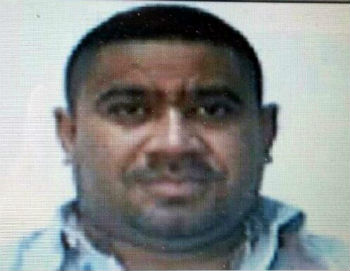Nearly three dozen mayors, congressmen, judges, military officials and police officers in Honduras are reportedly being investigated for their connections to a drug cartel, a potentially explosive probe that could help expose the deep links between elites and organized crime in the country.
According to an anonymous source consulted by La Prensa, Honduran and US intelligence officers are investigating 35 individuals, including eight mayors, nine congressional representatives, two judges, four active military officials, three businessmen and an unidentified number of police officers. The names of the suspects were not released in order to avoid interfering in the ongoing probe, reported La Prensa.
The individuals are suspected of working with the Atlantic Cartel, a criminal organization based in the western departments of Copán and Ocotepeque where the powerful Valle Valle drug clan once operated, according to the source. The source also said the Atlantic Cartel has “important alliances” with the AA Cartel, which is allegedly run by Alexander Ardón, the former mayor of El Paraiso, Copán.
The US Embassy in Honduras announced on October 7 that the alleged leader of the cartel, Wilter Neptaly Blanco Ruiz, is under investigation for drug trafficking and corruption alongside seven other suspects — including Carlos Alberto Maradiaga Izaguirre, an official with the Honduran Armed Forces. The embassy followed that up with an October 10 declaration that Santos Rodriguez Orellana, a captain in the Honduran Armed Forces, was under investigation for similar charges.
The Honduran Armed Forces announced shortly thereafter that the two captains under investigation had been suspended. Maradiaga Izaguirre has denied maintaining links to organized crime.
Acccording to La Prensa, the investigation intensified following a recent attack against several US anti-drug agents during a bilateral security operation in San Pedro Sula. The officials were driving in an armored car when it came under heavy fire from individuals suspected of belonging to the Atlantic Cartel. (See La Prensa’s photo below)

Investigators have reportedly nicknamed the group of almost three dozen suspects “The Pirates of the Caribbean,” for their ability to skirt maritime and aerial controls. According to an intelligence report, one of the members of the armed forces under investigation is suspected of manipulating the country’s radar system, which monitors the movement of drug planes.
Five Honduran police officers who were extradited to the United States in July on drug and arms trafficking charges have provided information related to the case to US authorities, according to La Prensa’s source.
InSight Crime Analysis
Taken together, La Prensa’s report and the US Embassy’s statements paint a frightening picture of the depths of corruption in Honduras. While the newspaper’s report has yet to be confirmed, it is unlikely that the embassy would have made its recent pronouncements without credible evidence of criminal wrongdoing.
“They must have irrefutable evidence and have given the names [of the suspects] for reasons that we don’t know,” said Julieta Castellanos, director of the National Autonomous University of Honduras.
SEE ALSO: Honduras News and Profiles
The reports may also be a sign that the US government’s patience with its Honduran counterparts is waning. The embassy called for a thorough investigation into the murder of prominent activist Berta Cáceres, and welcomed the arrests of four suspects in May. But in a bizarre and embarrasing twist, reports surfaced in early October that the case file for the activist’s murder had been stolen. Two of the supects are connected to a company that is building a dam that Cáceres was protesting, and many believe higher-level government and company officials are complicit in the murder.
Other indications of deep-seated elite corruption in Honduras came to the fore last year following the arrest in Miami of Yankel Rosenthal, the scion of one of Honduras’s wealthiest and most politically connected families. The family is suspected of illicit dealings with the Cachiros drug trafficking organization.
SEE ALSO: InDepth Coverage of Elites and Organized Crime
And in April, the New York Times released official documents implicating 25 Honduran police officers, including two former national police directors, in the 2009 murder of the country’s anti-drug czar. The officers are now being investigated for potentially working with the Atlantic Cartel and Blanco Ruiz, who allegedly ordered the hit on the anti-drug chief. But the documents suggest a systematic cover-up of the crimes that lasted for years, the US newspaper wrote at the time.
“There was a pact of silence,” the Honduran journalist Thelma Mejía told the Times.
Honduran authorities seized over 140 properties belonging to Blanco Ruiz in 2015, but he is believed to still be operating in the Mosquitia region of the country’s northeastern coast.
For now, La Prensa’s report and the embassy’s statements raise more questions than they answer. But the ongoing investigations could peel back yet another layer of high-level corruption in a country that continues to be beset by revelations of nefarious activity involving elites and organized crime.

